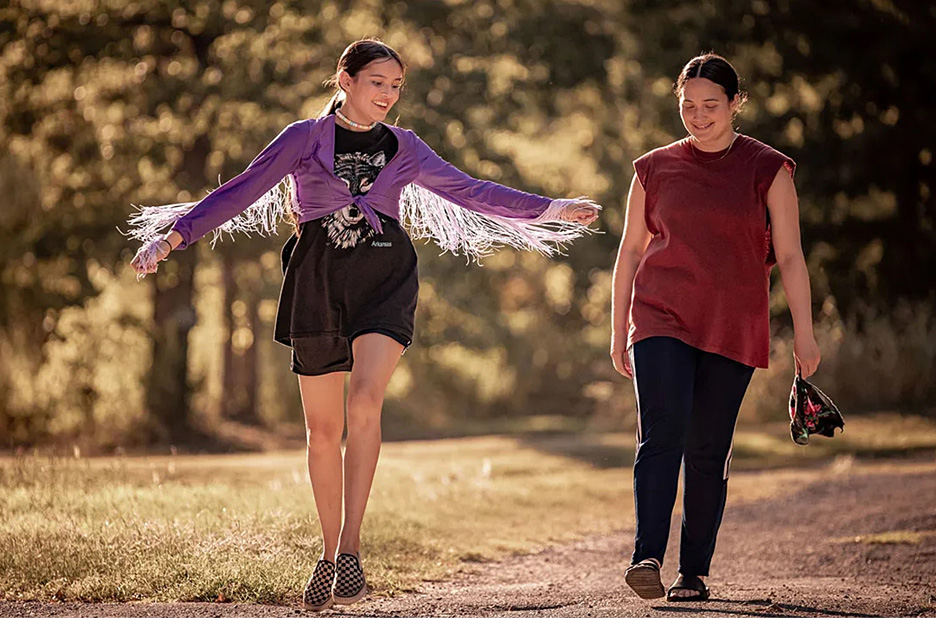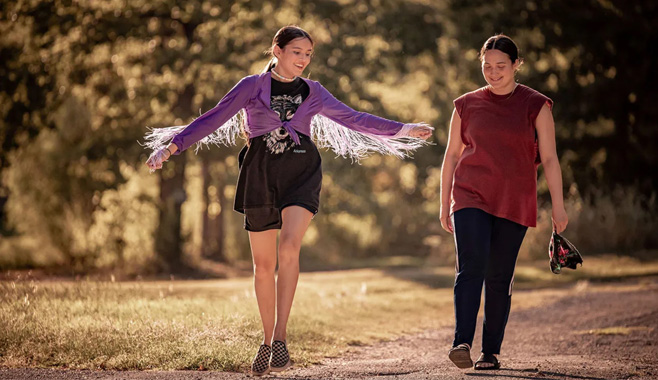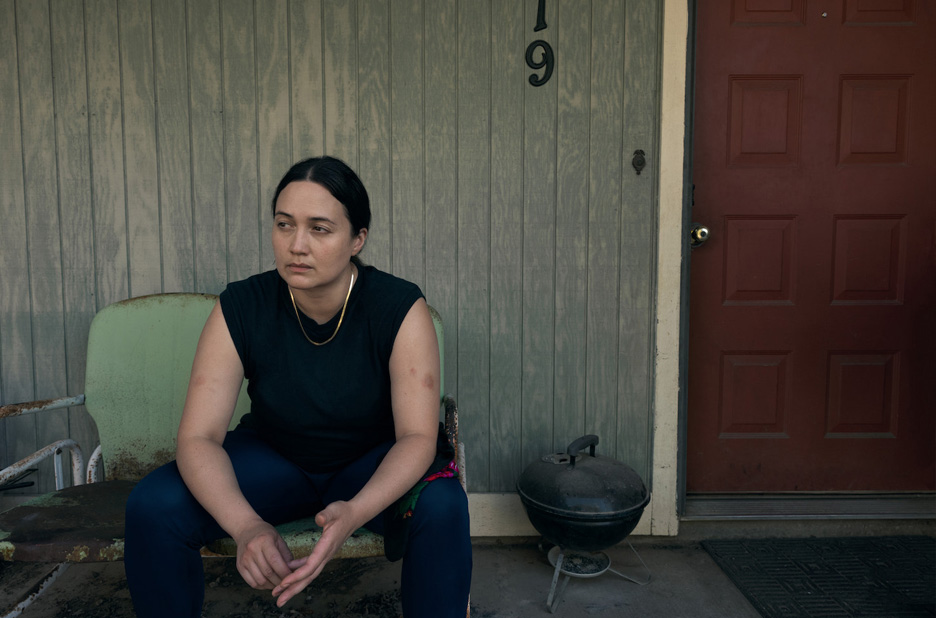Film
Fancy dance (2023)
Erica Tremblay
5/5
A contemporary native American story
It is extraordinary to consider that this is Erica Tremblay’s first feature film. Her experience in documentaries seems to have prepared her well to take a plunge into fiction. The film’s steady pace and development draw you in quickly and very soon you care about the two main protagonists, Jax, played by the indomitable Lily Gladstone and her niece Roki, played by the impressive Isabel DeRoy-Olson.


We are at the Oklahoma’s Seneca-Cayuga Nation reservation, and this is both important and not important for the story that unfolds. Tremblay offers us a universal story about marginalisation in society and dealing with death in the family, but also about how Native American communities preserve their strength.
Roki’s mother Tawi has disappeared and we join the story at the point where Jax is frustrated at the lack of police and federal activity and starting to suspect the worst. Roki, a teenager on the crossroads of adulthood and potential big changes to her life should her mother not return, is clinging to the belief that her mother will be back. All she really wants is to attend the annual powwow where she believes her mother will be waiting for her. Each year at the powwow Roki and her mother perform a traditional mother and daughter dance. This is now an even more important occasion for Roki grounding her in her community. She is vulnerable and streetwise in equal measure as most teenagers are and Isabel DeRoy-Olson portrays this beautifully.
Jax is not allowed to foster Roki because she has a police record, and so Roki is placed with her estranged white grandparents who mean well, but don’t really understand the situation. Roki is no longer allowed to be with Jax on her own and consequently they can’t attend the powwow together, but Jax decides to take her anyway, sensing we guess that the strength and opportunity to reconnect with her community will serve Roki well in the days to come. Jax assumes her father is likely to be tolerant of them absconding, but he reports them to the police and now they are pursued by the FBI.
Out of desperation Jax starts investigating Tawi’s disappearance on her own during their journey to the powwow and provides some leads to her bother JJ who is an Indian tribal policeman. JJ’s hands are tied on the matter as he has no jurisdiction, but he pursues the leads and finally Tawi’s body is found in the lake. Roki in the meantime steals a gun and ends up accidentally wounding a shop owner who recognised her as a fugitive. She then runs away after overhearing Jax saying on the phone that Tawi is most likely dead.

Jax heads to the powwow hoping she will find Roki there and indeed sees her joining the dance for the departed. The final beautiful slow-motion scene shows Jax and Roki dancing together at the powwow. We know that some tough times are to come, dealing with Tawi’s death and police prosecution of Jax for kidnapping and of Roki for shooting the shop owner, and we know that police will be tougher on Jax and Roki than they should be, but for the time being ‘little mother’ Jax provides the safety, connection and joy that Roki craves.
Choice of the ending of any work is always telling and here the accent is on the temporary communal relief as more important than legal resolutions to follow. White society’s rules are firmly placed as secondary to the needs of Native American communities. And this is important in a world where stories involving Native Americans have regularly portrayed them as negative supporting characters to white supremacy and where law enforcement and justice have regularly failed Native American communities.
There is a very interesting scene when Roki gets her first period just before she and her aunt are questioned by the police. The policeman wants to establish if everyone is where they should be, meaning that American Indians should be kept on their reservation and not getting any ideas that they could freely be where they want to be. Roki bleeds on the police car’s back seat and afterwards her and Jax have a conspiratorial laugh about it. Roki is more anxious about the policeman’s questioning then about her period, in itself a sign of disrupted development. The light relief about leaving some Indian blood in the car of the oppressive police force shows how little acts of resistance sometimes help a marginalised community to uphold its pride and dignity.
There must be space in our societies for alternative stories and ways of living. It is great to see a female Native American director create such a good film about the contemporary Native American community featuring an excellent Native American cast and with two powerful female characters at its heart.